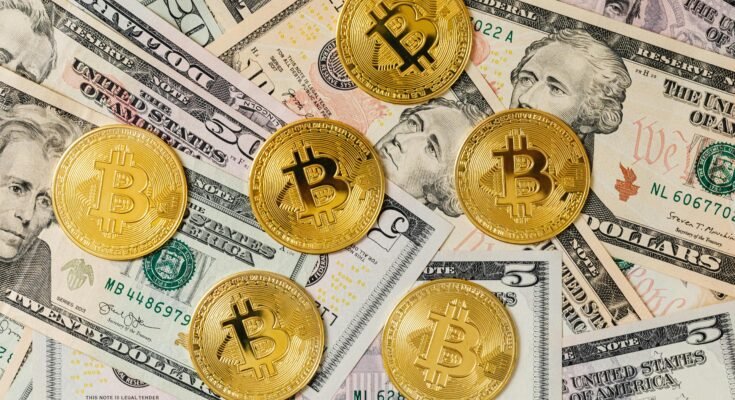Introduction
The financial environment is experiencing a fundamental shift. For centuries, traditional banks have formed the cornerstone of the global economy, performing transactions, lending money and safeguarding wealth. Now, a new entity—DeFi—aims to challenge this structure by creating a separate system with a cradle of financial participation, transparency and autonomy. But how does DeFi differ from banks and will DeFi reshape the future of financial services?
What is Decentralized Finance “DeFi”?
DeFi can be described as a blockchain financial system that eliminates intermediaries such as banks and brokers. Operating on decentralized systems such as Ethereum, DeFi allows users to lend, borrow, trade and accrue interest without the need for a central source. These actions are completed through smart contracts—self-executing contracts with preprogrammed rules—ensuring transactions are safe and completed in an automatic process.
How Traditional Banking Operates
Traditional banks are centralized institutions governed by regulatory bodies such as national and state governments. Banks serve as intermediaries by offering services such as deposits, loans, and payment processing. Traditional banks provide some security and legal protections. However, the toll on financial participation within the current banking system includes high fees, extensive documentation and a comprehensive control format that restricts financial access to many people in the world.
The Major Distinctions Between DeFi and Conventional Banking
1. Accessibility and Inclusion
DeFi: DeFi services are accessible to everyone with an internet connection and exhibit neither geographic nor bureaucratic limitations.
Traditional Banking: Bound by paperwork, credit checks, regulatory approval, and other obstacles that restrict services to only certain populations while often excluding the unbanked population.
2. Transparency and Autonomy
DeFi: Transactions are documented on a public blockchain resulting in transparency, and there is a reduced risk of fraud/human error.
Traditional Banking: All transactions are processed behind closed doors with financial institutions managing the custody of funds and all necessary transaction information.
3. Fees and Costs
DeFi: Low transaction fees theoretically. Due to the absence of intermediaries, fees will be lower.
Traditional Banking: Costs for transactions, wires, and conducting international transactions are staggering.
4. Trust and Security
DeFi: The security is based on decentralized networks regarding your security/property, but vulnerabilities do exist due to smart contract bugs and hacking among other risk factors.
Traditional Banking: Totally regulated and insured, you are less likely to lose money with banking mismanagement/institutional failure, given the different levels of legal protections.
5. Speed and Efficiency
DeFi: Instantaneous transactions, which are executed autonomously via smart contracts and the speed of the network.
Traditional Banking: May take hours and/or days to process because a human is doing the processing and checking at applicable banking hours.
The Future of Finance: Will DeFi Replace Financial Institutions?
Decentralized finance (DeFi) represents a paradigm shift in finance. Unfortunately, it brings with it a host of challenges – issues such as regulatory uncertainty, security problems, and scalability issues will need to be solved before mainstream adoption can occur. Traditional financial institutions, meanwhile, have realized that they need to embrace aspects of blockchain technology to add some of the values associated with DeFi into their existing systems. These institutions highlight successful hybrid systems that in the near future could blend both decentralized finances (DeFi) and traditional banking.
Conclusion
Decentralized Finance is an emerging economic sector seeking to reshape the financial industry as an alternative to a traditional banking system.
While the use of decentralized protocols is still a developing form of commerce, its potential to provide access to capital (financial inclusion), lowers costs (cost savings and reduced fees), and provides transparency, is a powerful approach to conducting market-style trade or commerce. It is hard to tell if the future of finance means the end of banking altogether, whether real or virtual, only time will tell – however, one thing is certain, the future of finance is digital, decentralized and evolving rapidly.
Final Thoughts
Are you ready to dive into the world of decentralized finance (DeFi)? Before doing so, you should understand fully some of its benefits along with the associated risks. Learn about decentralized finance (DeFi) before engaging in any financial service. Regardless, be curious, do research and be a part of the financial revolution!



